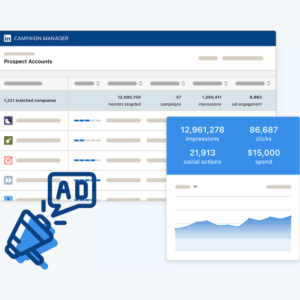Having a multilingual website can have a positive impact on your search engine optimization (SEO) efforts.
A multilingual website offers numerous advantages, ranging from increased global reach and improved user experience to enhanced credibility and competitive advantage. It enables businesses to connect with international audiences, expand their customer base, and drive growth in a globalized world.
8 Advantages of Multilingual Website
In this article we’re going to jump straight into the advantages of having a multilingual website and what kind of impact it can have on your broader SEO efforts.
Connect with a larger audience
The first and most obvious advantage of having a multilingual language is being able to connect and engage with a much larger audience.
Of course, this only counts if you can actually benefit from a wider audience. For example, an Arabic SEO agency could benefit greatly from having a multilingual website because it can open them up to Western clients – as opposed to working exclusively within the UAE.
Gain a competitive advantage
Another attractive benefit to having a multilingual website is simply gaining a competitive advantage over your biggest rivals.
If most of your competitors have mono-lingual websites that only accommodate one specific audience, (e.g., Arabic speakers) where do you suppose the other prospective clients will go?
With a multilingual website that has English and Arabic, for example, you’ll have a much greater chance at securing even more business!
Improved user experience
User experience is a crucial factor for SEO. By offering your website in multiple languages, you enhance the user experience for visitors who prefer to browse in their native language. This leads to longer visit durations, reduced bounce rates, and increased engagement, which are positive signals to search engines and can improve your rankings.
When users can access your website in their preferred language, they are more likely to engage with your content, spend more time on your site, and navigate through it more easily. Providing a seamless and personalized user experience fosters trust and encourages visitors to explore your products or services further.
Enhanced user trust and credibility
When users find content in their native language, it creates a sense of familiarity and trust. A multilingual website demonstrates that your business is committed to serving a diverse audience, and it showcases your international presence.
This can enhance your credibility and make users more comfortable engaging with your brand, leading to increased conversions and customer loyalty.
Put your customers at the very center
Multilingual websites demonstrate that they are taking a customer-centric approach because they are committed to accommodating a much broader audience. Adding multiple languages is an accessibility feature that many businesses don’t bother with.
However, in committing to accessibility and adding multiple languages to your website, it shows that you are all about putting the customer first.
Bolster your brand image
It is becoming increasingly more difficult to impress the modern consumer. Businesses are scrabbling over one another for the latest flex which is why you should look for any opportunity to differentiate yourself from the competition.
Being a multilingual business that is open to people from all walks of life is a very attractive brand image benefit indeed.
Expanded keyword opportunities
Each language has its own set of keywords and search terms that users employ to find information. By translating and optimizing your website content in multiple languages with the help of an SEO agency, you can target a wider range of keywords and tap into new keyword opportunities.
It increases your chances of ranking for different search queries and boosts your visibility and attracts organic traffic from various language-specific search engines.
Improve your international SEO
SEO is, without question, the single most important digital marketing strategy and any businesses that neglect it invariably fall behind.
And while you may be working on your own local SEO and happen to be doing rather well, what about your visibility in different languages?
The key is to not simply “translate” the content that you already have on your website, but to write multiple sets of content in each of your chosen languages. Additionally, you also need to create geo-focused content that is designed to resonate with each audience type in their respective language – and that includes all of the necessary metadata such as titles, descriptions, and image alt texts.
If you can commit to that level of detail (rather than simply use “Google Translate”), then your SEO will be far more impactful!
Click here for more on multilingual website best practices.
Conclusion
Having a multilingual website can be highly lucrative – when done right. As briefly mentioned earlier, you really need to write unique content as opposed to hitting the translate button. Far too many businesses make the mistake of assuming that this is enough. It is not.
That said, if you make a commitment to quality and expand the accessibility of your website, you can open yourself up to a whole new set of potential customers thus increasing your profits significantly!






